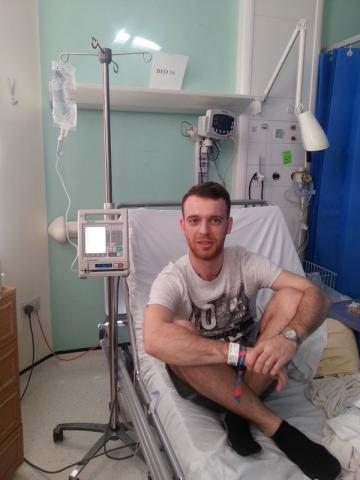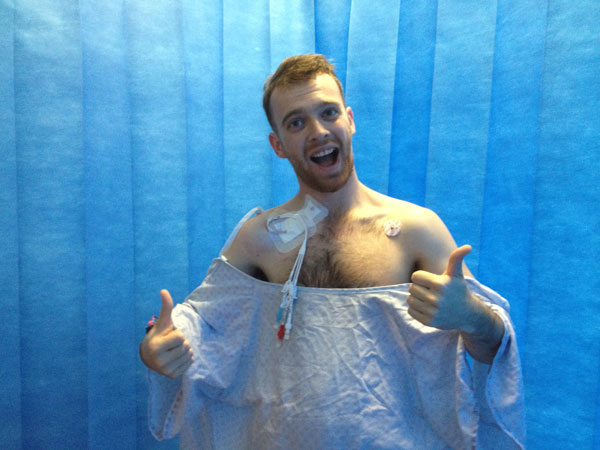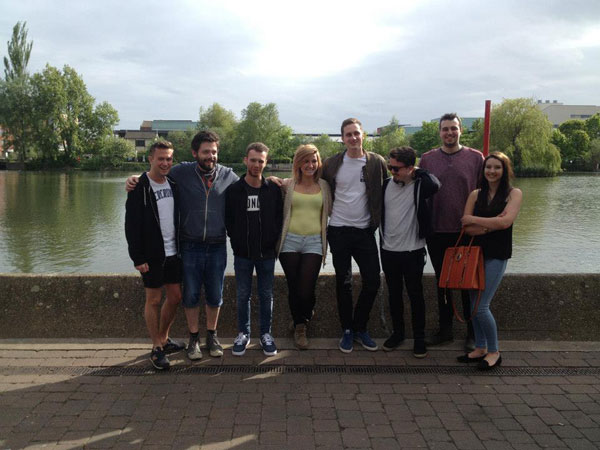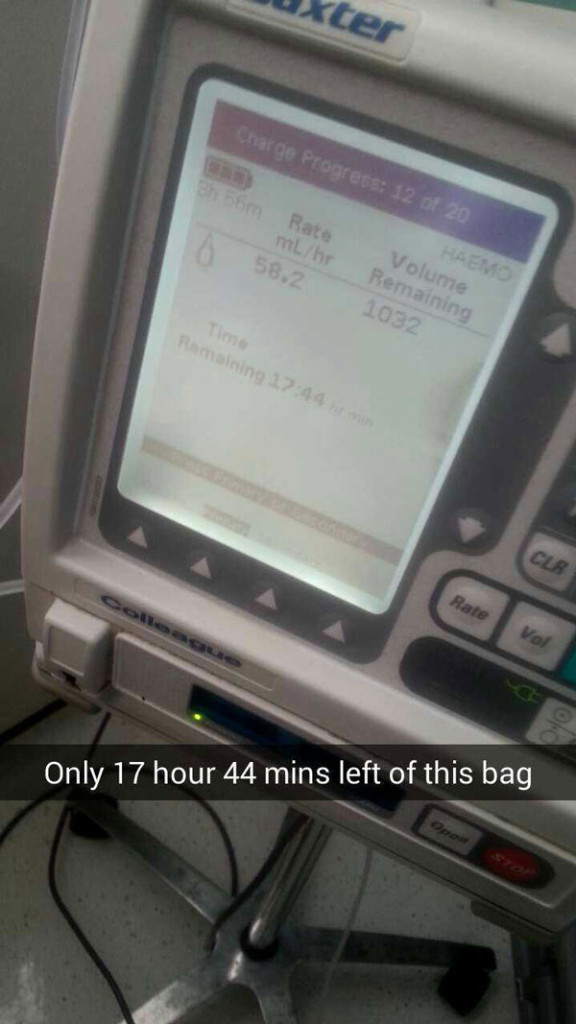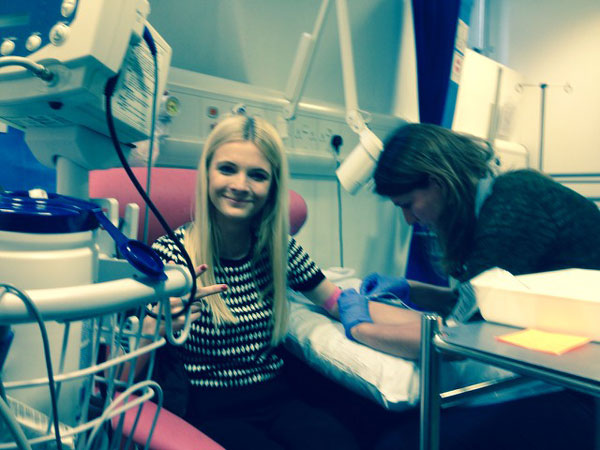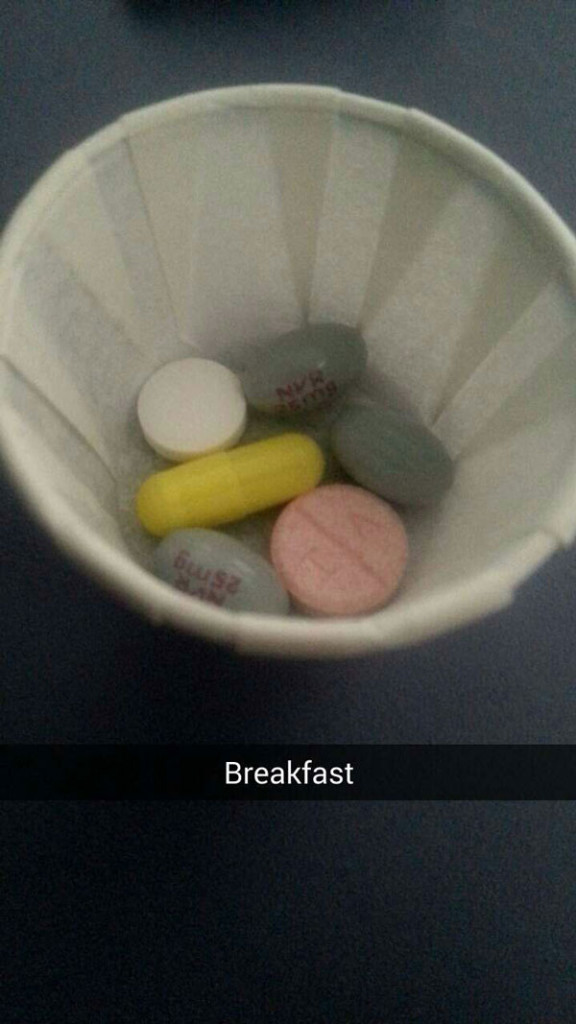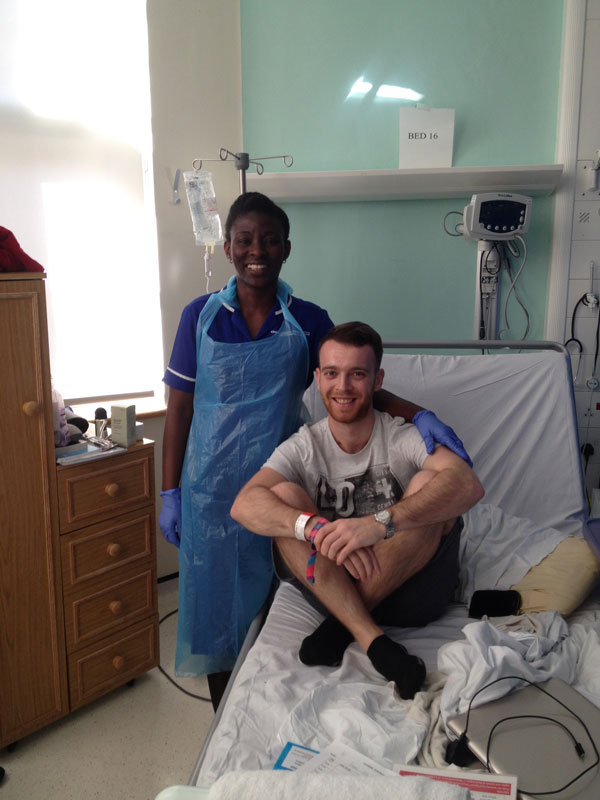Adam Riley is a 21 year old from South London, who's in his final year at Lincoln University studying English. He was recently diagnosed with Aplastic Anaemia – and he’s documenting the experience on his blog at http://adaminhospital.blogspot.co.uk/ He’s written this guest post for us to explain what it’s like to go through treatment.
On April 23rd, while playing PlayStation with my mates, I noticed that I had two missed calls from a number I didn’t recognise.
On the third call, I answered – it was the GP. He informed me that my blood counts were incredibly low and that I had to get to hospital urgently. The doctor almost certainly saved my life.
Had it not been for his quick response from my blood tests that morning, and his repeated ringing till I answered the phone, I probably would have died in my student house. No one would have realised until I hadn’t come downstairs to watch football on the weekend.
It’s strange to think that I turned up to Lincoln Hospital (I’m a Lincoln University student), laughing with my mates, with an overnight bag consisting of a phone-charger, a hat and a pair of boxers. I ended up needing more than that, as I stayed at the hospital for six nights and had seven transfusions (five blood and two platelets), a bone marrow biopsy, and a couple of scans.
I was then transferred back to London and had to inform my university about my current situation, as I was in the last few weeks of my final year of studies. Currently, my degree has been deferred and as such I won’t be graduating this summer with my friends – which is obviously upsetting for me.
I wasn’t officially diagnosed with my illness until Monday May 18th at King’s College Hospital, back home in London. I’d already been made aware that it was very likely that I had aplastic anaemia.Prior to getting this illness, I’d never heard of it. I’d barely even heard that there was something called ‘platelets’ in blood. Biology was never my strongest subject (Sorry, Mrs Matkins).
It’s been a really strange and surreal couple of months so far. I think my family and friends have suffered a lot more than me. I’m aware that I have a serious illness, but it’s hard to get my head around, as I haven’t been in any pain or real discomfort.
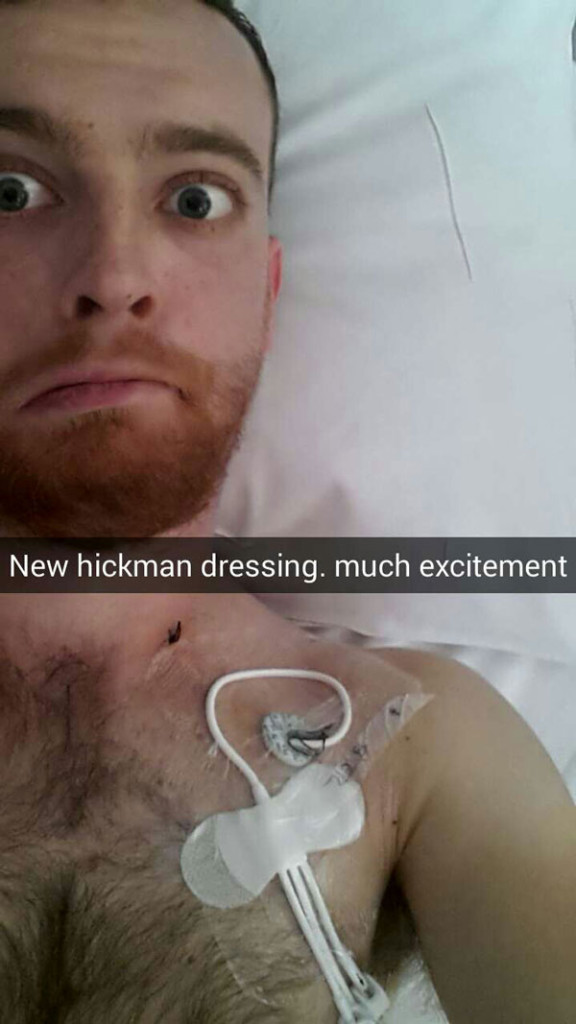
Obviously, having a couple of bone marrow biopsies and my Hickman Line surgery weren’t the most comfortable experiences I’ve ever had, but they weren’t painful. Most of my time has been spent being plugged into my new best friend; the machine that holds my many transfusions.
As I write this, my best friend is currently giving me my fourth and final bag of ATG treatment. From what I can gather, this is an immunosuppressive, and developed within horses. The amount of terrible horse jokes I’ve heard from my friends – and my mum in particular – is mad. I don’t think I’ve gone through a conversation with my mum in the last few days where she hasn’t neighed at least once.
I’ve been trying to keep track of all my transfusions, but I keep losing count as there have been so many.
I was originally supposed to have a bone marrow transplant, but sadly my sister is useless and wasn’t a match. I can never rely upon her. The drug treatment has been fine; I’m on Anthony Nolan’s records and if the ATG treatment doesn’t work, I’m confident that a match will be found.
Staying in hospital is a bit like a hotel you can’t leave. I have everything I need: room service, blood, platelets, an en-suite and wi-fi. Once my final ATG treatment is finished (it currently has under three hours left, on Sunday 14th June) I’ll basically be under supervision for side effects, as most occur in the week or so afterwards.
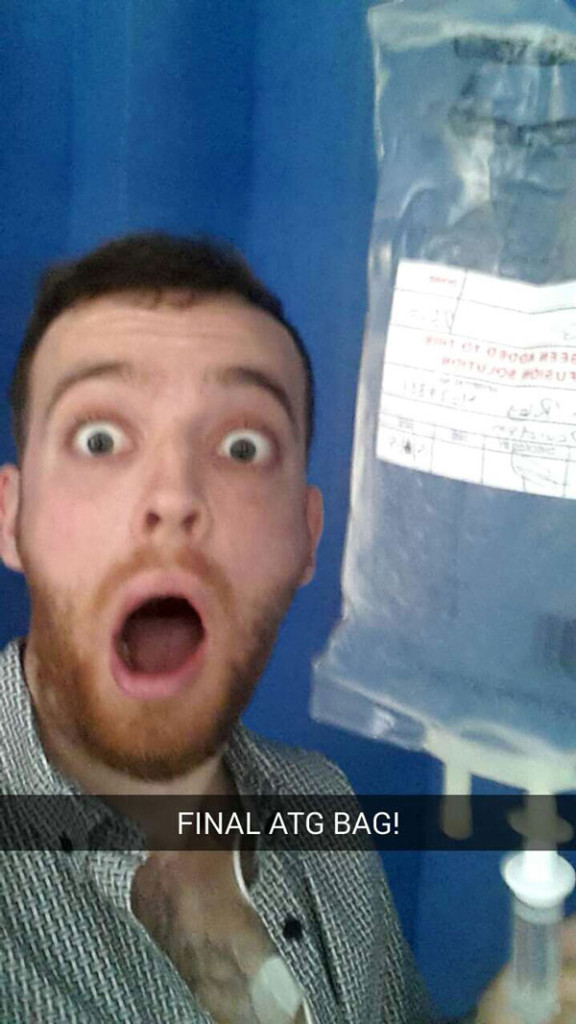
Suffering from this illness has been more frustrating than anything else, and without the help and support of my family and friends it would be a lot more difficult; I’m also grateful to all those who have been signing up to the Anthony Nolan register.
The biggest problems I’ve had are with overnight transfusions, where I inevitably find myself awake at 4am, twisted and knotted within wires.
The staff at both Lincoln Hospital and King’s Hospital have been great. Everyone has been incredibly helpful, and patient, from all levels of staff. They’ve been fantastic – and I will certainly never forget their kindness once this is all over.
If you’re interested in my experiences with this illness, I’ve been maintaining a blog, which can be accessed at http://adaminhospital.blogspot.co.uk/
At Anthony Nolan we're here for you before, during and after a transplant. Get information and support from our patient team - just visit www.anthonynolan.org/patients-and-families or email patientinfo@anthonynolan.org
